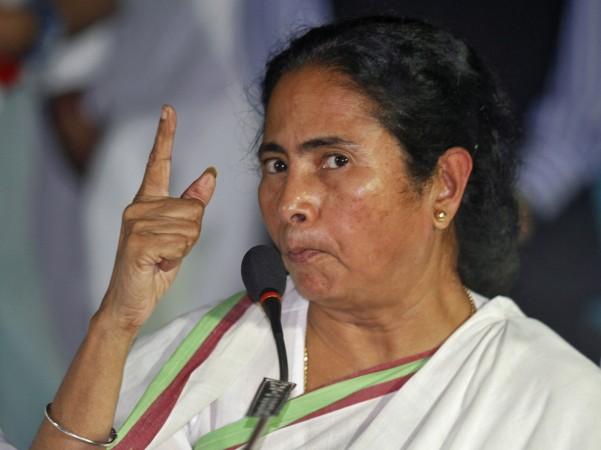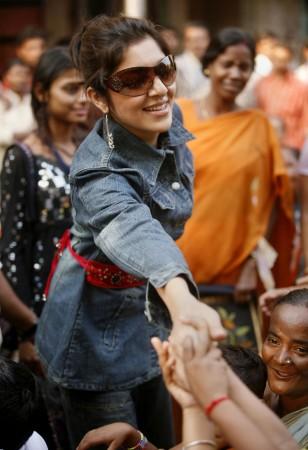
A 62-year-old woman who had protested against consumption of liquor by some local goons near her residence in Sandeshkhali area in North 24 Parganas district of West Bengal was gangraped and brutally violate and she succumbed to her injuries after fighting for her life for 27 days. The incident has brought alive the memories of the Nirbhaya gangrape case in Delhi in December 2012, something which had shaken the entire nation as well as people abroad.
However, the incident largely remained under the carpet till the media started giving it prominence. And then when state BJP leader Locket Chatterjee tried to reach out to the victim's family, her way was blocked by angry locals, especially women, who accused her of playing politics over the rape and murder.
Chatterjee, after failing to overcome the obstacle, was forced to return but she did not go silently. According to her, the protest was put up not by the local women but by goons backed by the ruling Trinamool Congress (TMC).
This reaction from the actor-turned-politician reminds one of the version that the state's chief minister – Mamata Banerjee — had come up with in the wake of another gruesome gangrape and murder case in Kamduni in the same North 24 Parganas district, in 2013. When Banerjee had gone to meet the family of the student who was brutalised by a few men, local women confronted her asking her why she had turned up late. This had infuriated the chief minister and she wasted no time to call them "CPI(M)'s people" while the fact is that area is dominated by the ruling party.
Both Chatterjee and Banerjee treated common people's protest in same ways
One would notice that there is a similarity in the way Chatterjee and Banerjee dealt with protests. Both tried to hide the failure of the political class by turning the pointed finger towards the opponents while the reality is that these protests are genuine outbursts of the common people who are fed up with the curses they have to live with regularly. For Chatterjee, however, it is easier to get away with accusing the ruling party while for Banerjee, a confrontation with the common people exposes her own government more.

But the BJP, which is desperate to cling on to anything to make inroads in Bengal, made its politics of opportunism evident through the visit of Chatterjee.
The saffron party was not seen as eager to address the issue as it was when the fire of communal tension had spread in Basirhat in the same North 24 Parganas district. When it comes to women's safety, the BJP's local leaders just settle for an open criticism of the Banerjee government.
And even while doing it, sometimes it insults the very women it claims to support [for example, BJP MP Roopa Ganguly's "women will be raped in Bengal inside 15 days" was a statement of low judgement and taste].
If Chatterjee expressed shock over a woman chief minister caring little for the women, her own party's MP was no sympathetic to the womenfolk either. The ultimate aim for them, irrespective of which party they belong, is to score political points.
BJP imitating TMC politics to beat it
The BJP is basically imitating the politics the TMC used to indulge in during its days in the Opposition to corner the Left. If one remembers, the murder of Tapashi Malik in Singur from where Mamata Banerjee's journey to the secretariat had begun, gave a massive political boost to the TMC as the Opposition. The BJP, today, is also trying to beat Banerjee in her own game but the fact is: the Chatterjees and Gangulys stand no chance to evolve as leaders of Banerjee's stature.

















